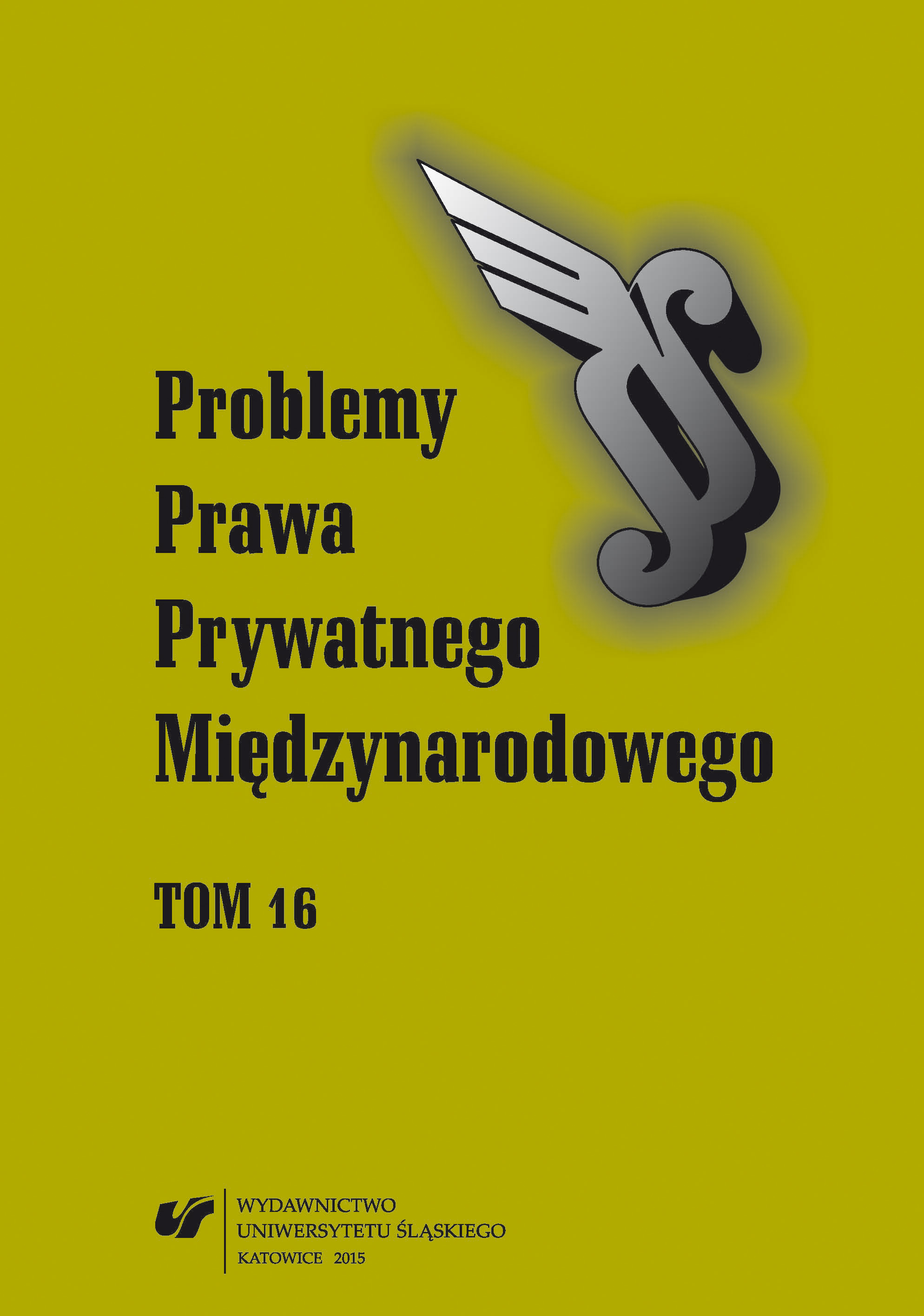Niemożność stwierdzenia treści prawa obcego w rozsądnym terminie — uwagi na tle art. 10 ust. 2 ustawy z dnia 4 lutego 2011 r. — Prawo prywatne międzynarodowe
Impossibility to ascertain the content of the foreign law within a reasonable time — Notes on provisions of the Article 10 (2) of the Act on Private International Law dated 4 February 2011
Author(s): Katarzyna Sznajder-PerońSubject(s): Law, Constitution, Jurisprudence, Civil Law, International Law
Published by: Wydawnictwo Uniwersytetu Śląskiego
Keywords: content of foreign law; impossibility to ascertain foreign law; obligation of the court; reasonable time; Polish law as last resort
Summary/Abstract: The article focuses on problems with the determination of foreign law. According to Polish regulations, the court is obliged to ascertain the content of the applicable law of its own motion. However, obstacles might be encountered in the process, which effectively hinder the procedure. The author discusses the question whether the provision of Art. 10 S. 2 of the 2011 Act on Private International Law is a functional solution, especially as regards the statutory criterium of “reasonable time”. Namely, the court’s efforts to determine the content of the law applicable should be undertaken within a time limit deemed as “reasonable”, given the facts of the case and the need to resolve it in an effective way. The court is obliged to undertake all available measures to ascertain the content of applicable law, having in mind that it cannot lead to a situation where the parties’ interests would be frustrated by the process taking too long. Should the court find that the determination of foreign law is not possible within reasonable time, according to Art. 10 s. 2 of the Act cited above it is obliged to apply Polish law as a last resort. In the article it is analyzed whether the present statutory regulation fulfills its role, as expected in the law-making process. The author concludes that this provision is a flexible solution, allowing the court to assess the situation in a given case and reach a decision taking into account all the important issues. There is no need modify the law, especially by introducing a more detailed provision.
Journal: Problemy Prawa Prywatnego Międzynarodowego
- Issue Year: 2015
- Issue No: 16
- Page Range: 45-65
- Page Count: 21
- Language: Polish

